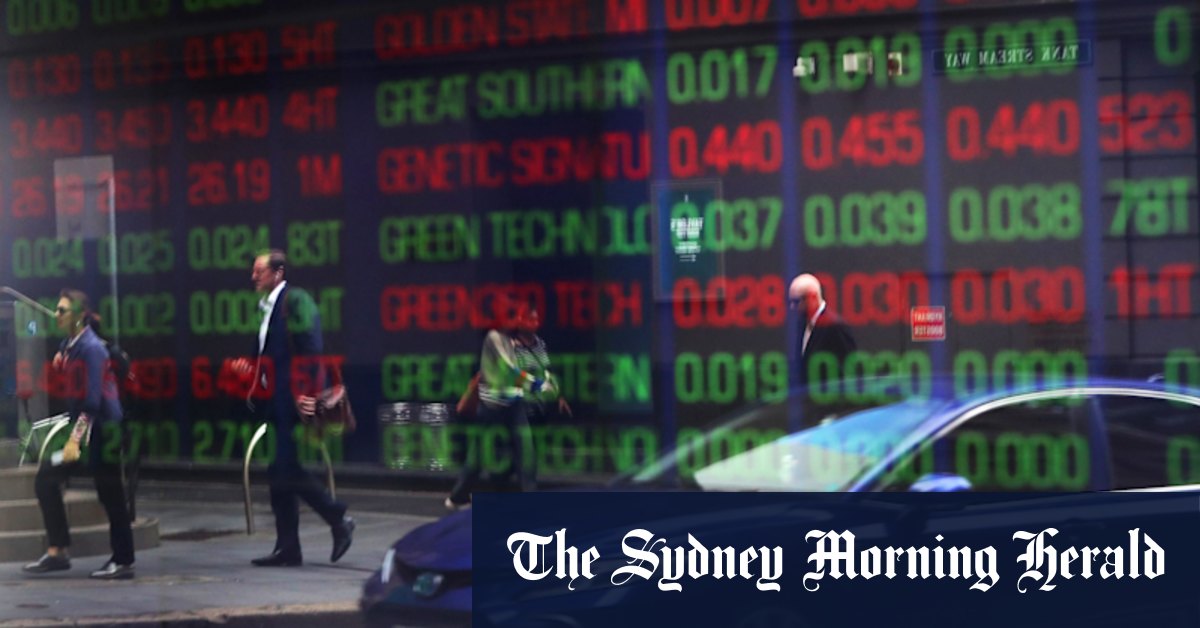ResMed shares reached a record high after the maker of medical devices posted another solid quarter of earnings growth.
The company on Friday said it had made $US1.35 billion ($2.09 billion) in revenue in the three months to June 30, up 10 per cent from $US1.2 billion from the same time in 2024.
It posted a gross profit of $US820 million, up from $US715 million a year ago, amid strong global demand for its sleep and breathing devices. ResMed shares closed 1 per cent higher at $42.88.
The laggards
Most major bank shares lost ground. Commonwealth Bank (down 1.6 per cent), National Australia Bank (down 1.2 per cent), Westpac (down 1.1 per cent) and Macquarie Group (down 1.7 per cent) all fell. ANZ Bank gained 0.5 per cent.
Loading
Healthcare stocks declined as Trump shook up the industry, after it was revealed the US government had sent letters to 17 of the world’s largest drugmakers demanding they charge the US what other countries pay for new medicines. CSL lost 2.5 per cent.
The technology sector also slumped, dropping 2.4 per cent as Xero subtracted 3.5 per cent and WiseTech Global retreated 2.6 per cent.
Mining giant BHP edged down 0.1 per cent and Rio Tinto fell 0.7 per cent. Fortescue bucked the trend and gained 1.2 per cent.
Star Entertainment Group plunged 16.4 per cent after it announced a deal to sell its 50 per cent stake in its Queen’s Wharf hotel and casino complex had collapsed.
The lowdown
While Australia avoided an increase in tariffs under Trump’s latest series of announcements, the move will still boost the average US rate on goods from across the world.
Growing concerns that the levies could weigh on economic growth are starting to overshadow the AI-driven optimism that has buoyed mega-cap technology stocks in the US.
“The reality is that we’re still going to see higher tariffs than pre-Liberation Day and we’ll start to see some economic impact of that in the months ahead,” said AMP chief economist Shane Oliver. “There’s still uncertainty about China; Mexico has been delayed by another 90 days and details around sectoral tariffs are also yet to come.”
Saxo Markets chief investment strategist Charu Chanana said the tariff announcements had brought “clarity on paper, but uncertainty in practice”.
“While markets now know the numbers, the lack of a clear framework behind these tariffs — and the seemingly arbitrary rates — only reinforces the sense of policy unpredictability. This makes it harder for businesses and investors to plan ahead,” Chanana said.
Overnight, the S&P 500 fell 0.4 per cent, the Dow Jones lost 0.7 per cent and the Nasdaq composite slipped less than 0.1 per cent.
Loading
Healthcare stocks were the biggest drag on the US market. Eli Lilly & Co fell 2.6 per cent, UnitedHealth Group slid 6.2 per cent and Bristol-Myers Squibb lost 5.9 per cent.
About 70 per cent of stocks in the S&P 500 lost ground, but big technology stocks with hefty values helped temper the impact of losses in healthcare and other sectors.
Technology stocks rose following results from big companies showcasing advancements in artificial intelligence.
Meta Platforms, the parent company of Facebook and Instagram, surged 11.3 per cent after it crushed Wall Street’s sales and profit targets even as the company continues to pour billions into artificial intelligence.
Microsoft jumped 4 per cent after also posting better results than analysts had expected. The software pioneer also gave investors an encouraging update on its Azure cloud computing platform, which is a centrepiece of the company’s artificial intelligence efforts.
Apple and Amazon reported their results after the closing bell. Apple forecast revenue well above estimates, following strong June quarter results supported by customers buying iPhones early to avoid Trump’s tariffs.
Amazon posted higher fiscal second-quarter profit and sales, underscoring its resilience despite tariff uncertainty. The company also offered on Thursday a sales outlook for the current quarter that beat analysts’ projections. But its shares fell 5 per cent in after-market trading.

